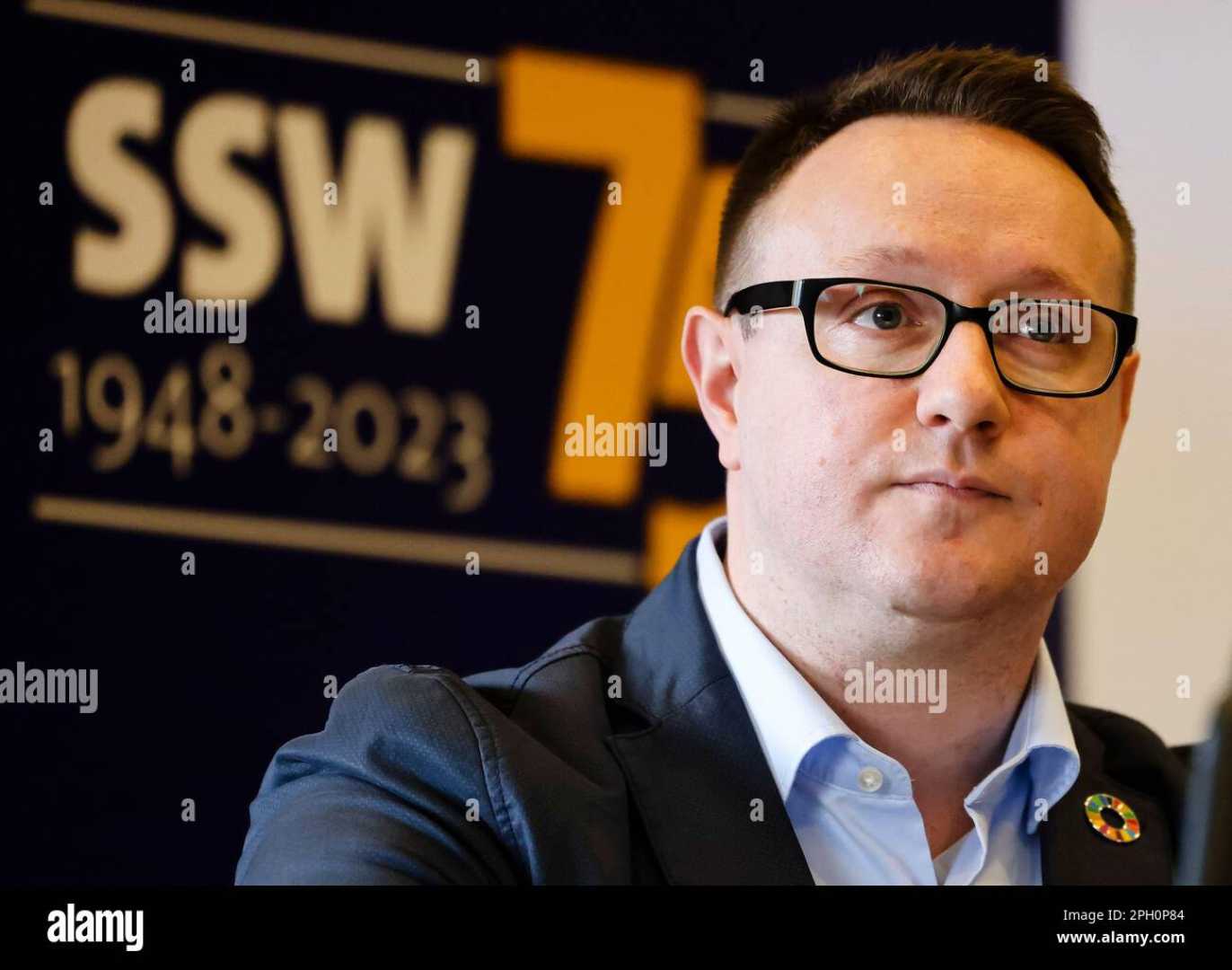Politics
Südschleswigsche Wählerverband Poised for Bundestag Return After Historic Success

FLENSBURG, Germany — The Südschleswigsche Wählerverband (SSW) appears set to secure its position in the Bundestag following the recent election held on February 23, 2025. The party, which champions the interests of Danish and Frisian minorities, has been a historic presence in the Schleswig-Holstein parliament and reemerged on the national stage after a significant hiatus.
Christian Dirschauer, the SSW’s state chairman, announced on Sunday evening, “We have achieved our election goal of maintaining the SSW in the Bundestag,” a claim bolstered by preliminary results. “This is already a historic success and shows that the people in the North recognize the work of Stefan Seidler in the Bundestag.” Seidler, who has served as the top candidate again this election, demonstrated his political viability with the party’s expected return to national representation.
As of the latest counts, the SSW garnered 51,390 second votes out of 3,052 electoral districts, significantly exceeding its threshold expectation of 40,000 votes. Chief Electoral Officer in Schleswig-Holstein further confirmed that the preliminary total stood to increase as more results were tallied.
The SSW’s path back to the Bundestag is attributed to an exemption from the five-percent clause imposed on larger parties by federal election law, enacted to encourage representation of national minorities. This regulatory provision enabled the SSW to advance even without a sufficient number of total votes traditionally required to secure a seat in the Bundestag.
Historically, the SSW has focused on various social and liberal issues aligning closely with Scandinavian political trends. Its core demands during this election included infrastructure reforms, increased investments in climate protection measures, and an independent BaFöG student funding model based on parents’ income, alongside advocating for a mandatory minimum wage of €15 per hour.
Seidler voiced satisfaction with the results stating, “I must pinch myself with how much we have achieved for our minority communities. We have put the North on the agenda and showcased Schleswig-Holstein’s critical needs.” His contributions in addressing coastal protection, minority promotion, and infrastructure have symbolized the SSW’s commitment to its constituents.
Following the elections, there remains a broader picture of political reconfiguration, with the Union party appearing as the night’s ultimate victor, surpassing other rivals such as the AfD and the SPD, thus presenting their unifying agenda for subsequent coalition strategies.
Voter turnout this election stood above the national average, hinting at increased civic engagement across various demographics, especially amidst dissatisfaction with the recent governing coalition. Various surveys indicated a significant desire for change among constituents, perhaps catalyzed by challenges in socio-economic conditions and rising cost-of-living issues.
“A strong government is required to navigate the coming challenges and foster stability in chaotic times,” emphasized former Chancellor candidate Friedrich Merz while celebrating the Union’s victory at their election night gathering.
The evolving political landscape in Germany, marked by historical successes and challenges, suggests further complex dialogues as party leaders prepare for coalition negotiations ahead.
The SSW’s return to Bundestag discussions promises a focused approach on minority interests, regional development, and social justice in the national dialogue as Germany confronts pivotal legislative months ahead.












